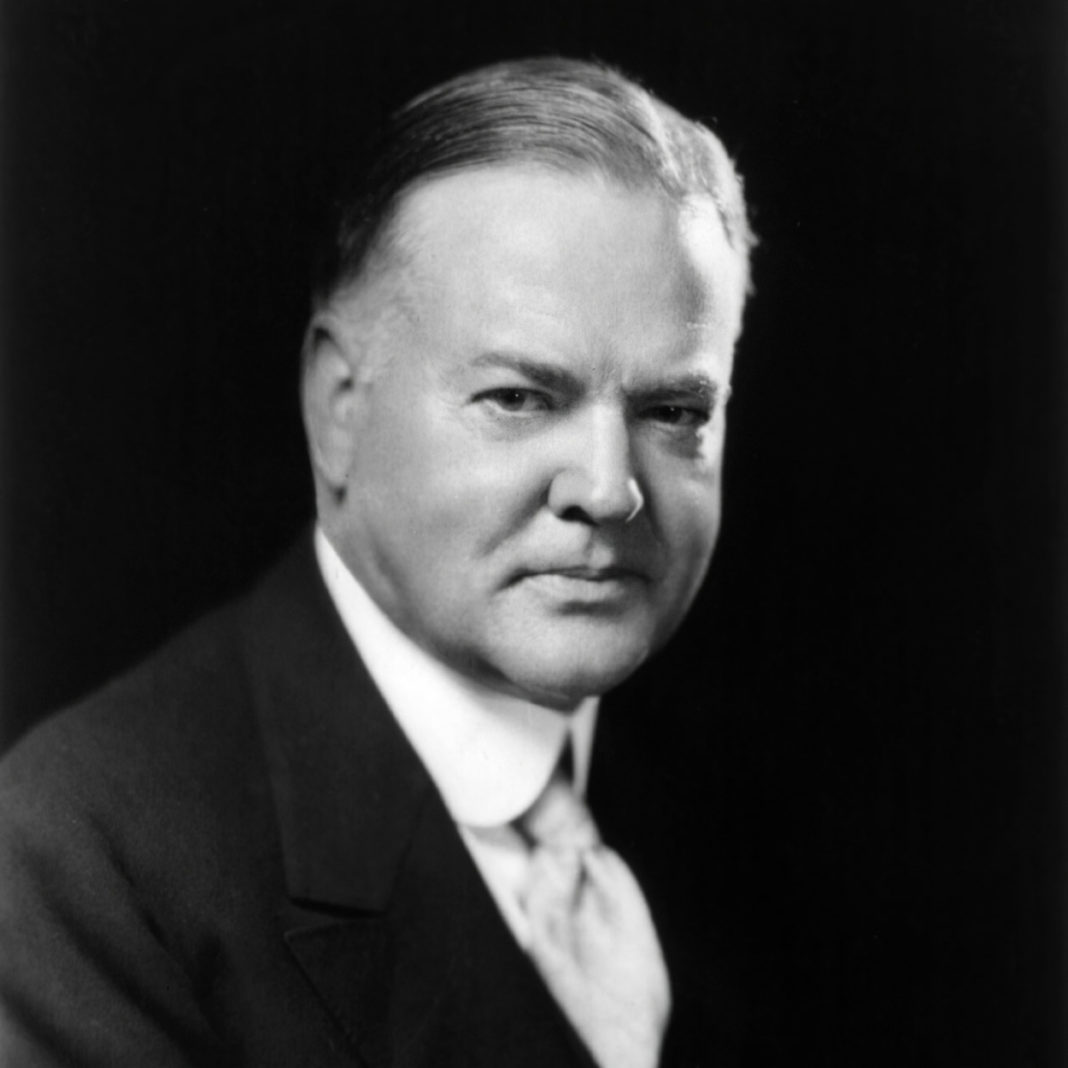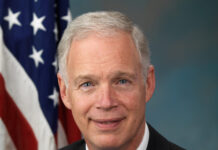On August 10, 150 years ago, Herbert Clark Hoover was born in his family’s two-room cottage in West Branch, Iowa.
Hoover’s parents were among the village’s early settlers, traveling by covered wagon in search of America’s promise on the prairie. As the only Iowan elected to the White House, Hoover helped put his birthplace on the map. He was elected by a landslide in 1928 and was the first president born west of the Mississippi River.
On his 74th birthday celebration in West Branch, Hoover said, “I am proud to have been born in Iowa. Through the eyes of a 10-year-old boy, it was a place of adventure and daily discoveries – the wonder of the growing crops, the excitement of the harvest, the journeys to the woods for nuts and hunting, the joys of snowy winters, the comfort of the family fireside…” and “life’s disciplines by way of farm chores.”
Hoover learned resilience at a young age. He and his two siblings were left orphaned before he reached the age of 10. His Quaker upbringing shaped his values and beliefs in individualism, voluntarism, simplicity, liberty and charity.
Hoover paved a global humanitarian footprint, saving tens of millions of people facing starvation amid two World Wars.
While living in London during World War I, Hoover honed his organizational skills by helping bring 120,000 stranded Americans home. Next, Hoover founded the Commission for Relief in Belgium, debuting exceptional diplomacy to orchestrate an unprecedented distribution of food in a war zone, feeding up to nine million people a day. He didn’t take a dime for his own salary or living expenses.
President Woodrow Wilson tapped Hoover in 1917 to lead the U.S. Food Administration. Hoover used his diplomatic skills and Iowa common sense to galvanize Americans to preserve resources. Families limited meat and wheat on their weekly menus and planted victory gardens in patriotic support of the war effort, paving the way for American agriculture to increase food shipments to U.S. allies. Following Armistice Day in 1918, Hoover headed the American Relief Administration, steering efforts to rebuild war-torn Europe.
It’s fitting an Iowan from America’s heartland served as the world’s food ambassador. Hoover fought hunger with honesty and humility, earning the nickname, “The Great Humanitarian.” Hoover said famine is a threat “more destructive than armies” and a force so powerful to render “disorder and the paralysis of government.” He warned, “Civilization marches forward upon the feet of healthy children.”
Hoover also served in the Harding and Coolidge administrations, leading the U.S. Department of Commerce. Here, he leveraged his vision for business and industry to become more profitable and efficient through competition and information-sharing. He fostered innovation in aviation, radio and automobiles, leaning on his international experience to open new markets and grow the U.S. economy.
Our nation’s 31st president served one term; his presidency was overshadowed by the Great Depression, for which he ultimately became a political scapegoat. Although his name wasn’t used in glowing terms during the global economic collapse, it became part of the vocabulary for his humanitarian efforts and time in public office. “Hoover lunches” fed millions of hungry people across war-torn Europe; and, the Hoover Compromise divided water rights in the west, paving the way for the construction of the Hoover Dam. During his presidency, “Hoover-ball” was invented to help keep him physically fit.
Post-presidency, Hoover’s wisdom and expertise were called into service by Presidents Truman, Eisenhower and Johnson to help manage the sprawling federal bureaucracy.
Earlier this year, I visited Iowa’s only Presidential Library and Museum in West Branch, which preserves documents and artifacts from Hoover’s life and presidency to educate future generations. I applaud community members for their modernization project and encourage Iowans and all Americans to put the library on your bucket list.
At the signing of legislation establishing the Herbert Hoover National Historic Site on August 12, 1965, President Lyndon B. Johnson aptly summed up the Hoover spirit: “He was a big man, and he was a dedicated man. He was a good man and, above all, he was a devout and honest and compassionate man….it is quite appropriate we set aside for posterity this memorial on the soil from which came an uncommon man and an uncommon American.”
The gravesites of President Hoover and First Lady Lou Henry Hoover are located on a hill in West Branch overlooking the cottage of his birth. In his memoirs, he wrote, “My roots are in this soil.” A man of simple beginnings, Hoover led an extraordinary life and made an extraordinary difference in his community, our nation and the world.
















